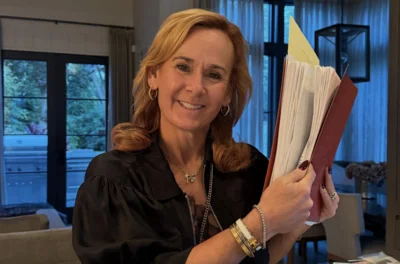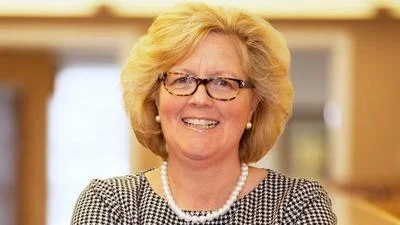Illinois State House Rep. Jeanne Ives (R-Wheaton)
Illinois State House Rep. Jeanne Ives (R-Wheaton)
With the so-called "Grand Bargain" compromise budget deal expected on the Senate floor next week, an Illinois House representative from Wheaton says it's harder to get people to understand an alternative proposal than it is to get it to the House floor.
"You talk about our struggle," Illinois State House Rep. Jeanne Ives (R-Wheaton) told the DuPage Policy Journal during a phone interview. "Our struggle is just getting people to understand what we're trying to do and actually report on it in a reasonable way. That's our struggle."

Ives backs no-tax alternative to Senate 'Grand Bargain'
| Courtesy of Morguefile
Ives has thrown her support behind legislation derived from a proposal developed by a Chicago-based conservative think tank that -- unlike the Senate's Grand Bargain -- would reduce spending, provide property tax relief and implement needed reforms. However, Ives said, she also has no illusions about the chances of an alternative budgetary proposal: it will have a tough fight just to be heard.
"Do I think this will get through the legislature?" Ives said. "Probably not. Because I know the people down there. They're not interested in a reform measure that is respectful of taxpayers. They're not interested in it. And that's obvious on both the Republican and Democrat side."
At a press conference Tuesday, Jan. 31, members of the Illinois Policy Institute rolled out budget proposals they say would lead the state out of its almost two-year budget impasse, closing the $7.1 billion deficit without adding new taxes.
The IPI plan, Budget Solutions 2018, would provide $3.4 billion in savings, a property tax freeze and an end to various state subsidies and mandates.
Both the legislation Ives supports and the IPI proposal are running up against enthusiasm in Springfield for an apparently bipartisan proposed multibillion-dollar budget deal in the Senate with few reforms, increased taxes and more spending.
The Senate's Grand Bargain, announced by Senate President John Cullerton (D-Chicago) and Senate Republican Leader Christine Radogno (R-Lemont), is expected to see action on the Senate floor on Monday, Feb. 7. A review by the governor's office found that the Cullerton-Radogno compromise proposal would leave Illinois with a $4.3 billion deficit, significantly lower than it is now.
The budget impasse, which has left Illinois without a balanced budget for more than two years, has been fought out mostly between Republican Gov. Bruce Rauner and Illinois State House Speaker Michael Madigan (D-Chicago). Some observers have said the Cullerton-Radogno compromise could be just the proposal to end that stalemate.
Radogno has been criticized for her role in reaching the Senate's Grand Bargain.
"And that criticism is just deserved," Ives said.
More than struggling against the current in her own party, Ives said getting word out about the alternative proposal in the House is made all the more difficult when members of the media intentionally misrepresent that alternative.
"We have a bigger obstacle right now: just trying to get the regular media who actually listened in on the press conference to not misrepresent what's actually in the bill," Ives said. "I've already read numerous editorials and articles saying, 'Oh, we're going to move everybody over to a 401K retirement account.' That's not true. We're taking new hires into a modernized system that most taxpayers have, new hires. And we're levying the tier two employees, who are just getting scammed, by paying the same percentage of their salary into a pension system when they're getting much less benefit out of it. They're subsidizing tier one and current retirees. So we're making it a much better system for those folks. People aren't picking up on that and that's a very important part of this. The pension reform piece of the bill is really important to understand."
Even if Ives and other supporters of the alternative proposal in the House can't turn the tide, there is benefit to swimming against it, the House representative believes.
"At least we can turn the conversation away from the high-cost plan of the Senate," she said. "That's what we need to do. I'm willing to have a conversation about to what degree do we do some of this, where can we find other cuts to make up for something that, maybe, they want to take away from our plan. I'm more than happy to have that conversation. But we need to take the direction away from taxing more because we know where that got us before and it wasn't good. We cannot afford it. A number of economists are now basically calling it what it is, Illinois is in a death spiral. And that's not me saying it. That's people who are watching the financial markets and understand what's going on. They see it."






 Alerts Sign-up
Alerts Sign-up